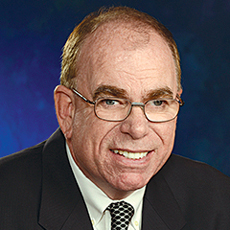
In a world where good judgment rules, almost everyone would want protection against a deadly virus. Clearly, that’s not the world we live in.
While two COVID-19 vaccines have been developed and more are on the way, many among us remain content to take their chances.
A recent Kaiser Family Foundation survey of healthcare workers found nearly a third (29%) were “vaccine hesitant.” That is only slightly more than the percentage in the general population (27%). Do some rough math, and those numbers — if accurate — might represent nearly 100 million people nationwide. So we’re not just talking about a handful holdouts.
Some of the reasons for such widespread antipathy bear consideration. Many people remain concerned, for example, about the unprecedented speed at which vaccines are being developed and approved. Others simply don’t want to be guinea pigs.
OK, points taken. The risk for possibly negative consequences is not off the table. But what about the consequences of being infected? After all, this virus has been linked to more than 400,000 deaths so far.
Rejecting a COVID-19 vaccine because there could be problems later on is like refusing help from a burning building because the ladder might break. Yes, either choice carries uncertainty. But the odds are hardly equal.
So what’s the problem here? Are we a nation full of dullards lacking common sense? No.
But we are a nation full of people who are increasingly getting their information from dubious sources. First and foremost among the accused is social media. For all the good it has done, social media has also become the greatest disseminator of propaganda and false information ever invented.
Far too many of these websites and applications offer little more than a forum for crackpot theories, lies and other misinformation. Sadly, these troubled and troubling little hamlets are attracting legions of admirers, who can’t seem to get enough.
And what is the gospel of the vaccine-denying preachers? Frankly, the messaging is all over the place. But among the favored themes: that vaccine components are toxic, that they are not tested enough, that the scientists behind them are quacks, that cell cultures affront religions, and that the government is guilty of tyrannical excess. The list goes on.
It’s bad enough that even well-informed people can be vulnerable to such misinformation. Even worse are the consequences. Because so many workers and residents in this field remain opposed to vaccination, millions of avoidable illnesses and deaths are sure to follow.
As clinical outcomes go, those are nothing short of a national tragedy.
John O’Connor is Editorial Director for McKnight’s.




